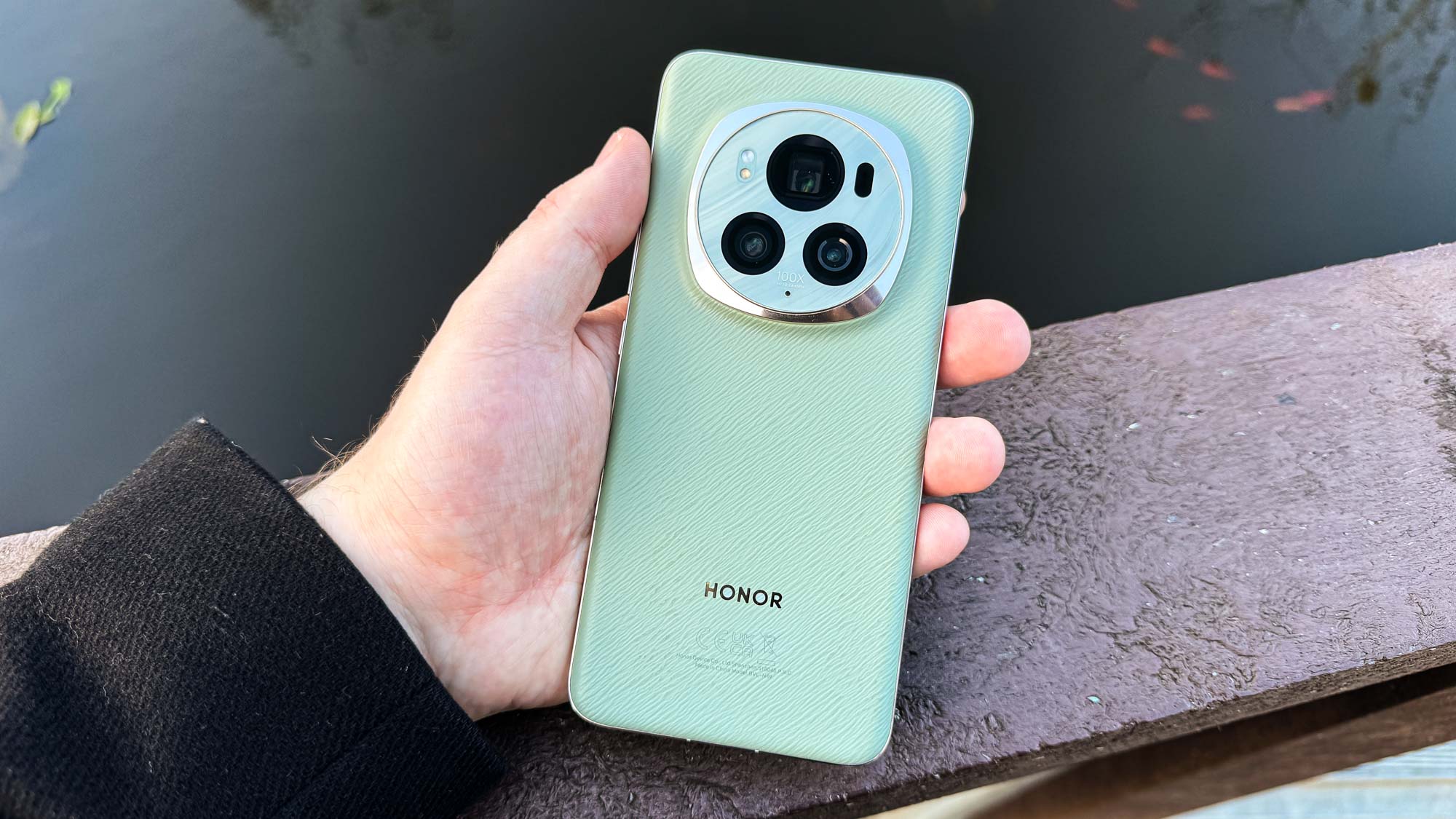
I've loved having the Honor Magic6 Pro in for testing, as it's another example of Honor nailing the basics of a flagship phone while still injecting some personality into the phone through some uncommon extra features. But it's harder to recommend this phone than you'd think.
The Magic6 Pro should be competitively priced, but it won't be on sale in the U.S. at all. Honor promises some ingenious AI features for the phone, but what's currently available is quite straightforward. And its cameras are well-specced with the capacity to produce excellent photos, but it trips up in low-light situations. There's also the matter of a slightly shorter software update schedule if you're concerned about getting the most post-purchase support.
Our Honor Magic6 Pro review will explain exactly how the phone still impresses even with some uneven performance. But to spoil things early, users who can focus and appreciate the stuff this Honor flagship can do that its rivals can't will be able to forgive its weaknesses very easily.
Honor Magic6 Pro: Specs
Honor Magic6 Pro: Price and availability
The price of the Magic6 Pro has been revealed as 1,299 euros, with pre-orders starting from February 25th.
Accounting for the higher default memory spec, this price puts the Magic6 Pro in the same bracket as the Samsung Galaxy S24 Plus, the OnePlus 12, Google Pixel 8 Pro and iPhone 15 Pro - a tough crowd to be going up against. But no matter how good the Magic6 Pro's pricing ends up being, we can also fairly safely assume that the phone will not go on sale in the U.S. Though it will still be offered in the U.K.
Honor Magic6 Pro: Design and display
Like most leading Android flagship phones, the Honor Magic6 Pro offers a 6.8-inch OLED display with a 120Hz adaptive refresh rate. But one interesting difference is Honor still offers curved edges on all four sides of the Magic6 Pro’s screen, whereas most other manufacturers now use flat edges. I've never had an issue with using curved displays, and Honor's four-sided approach means you get the ergonomic benefits of rounded edges even when holding the phone horizontally. But it could be a sticking point for some buyers all the same.
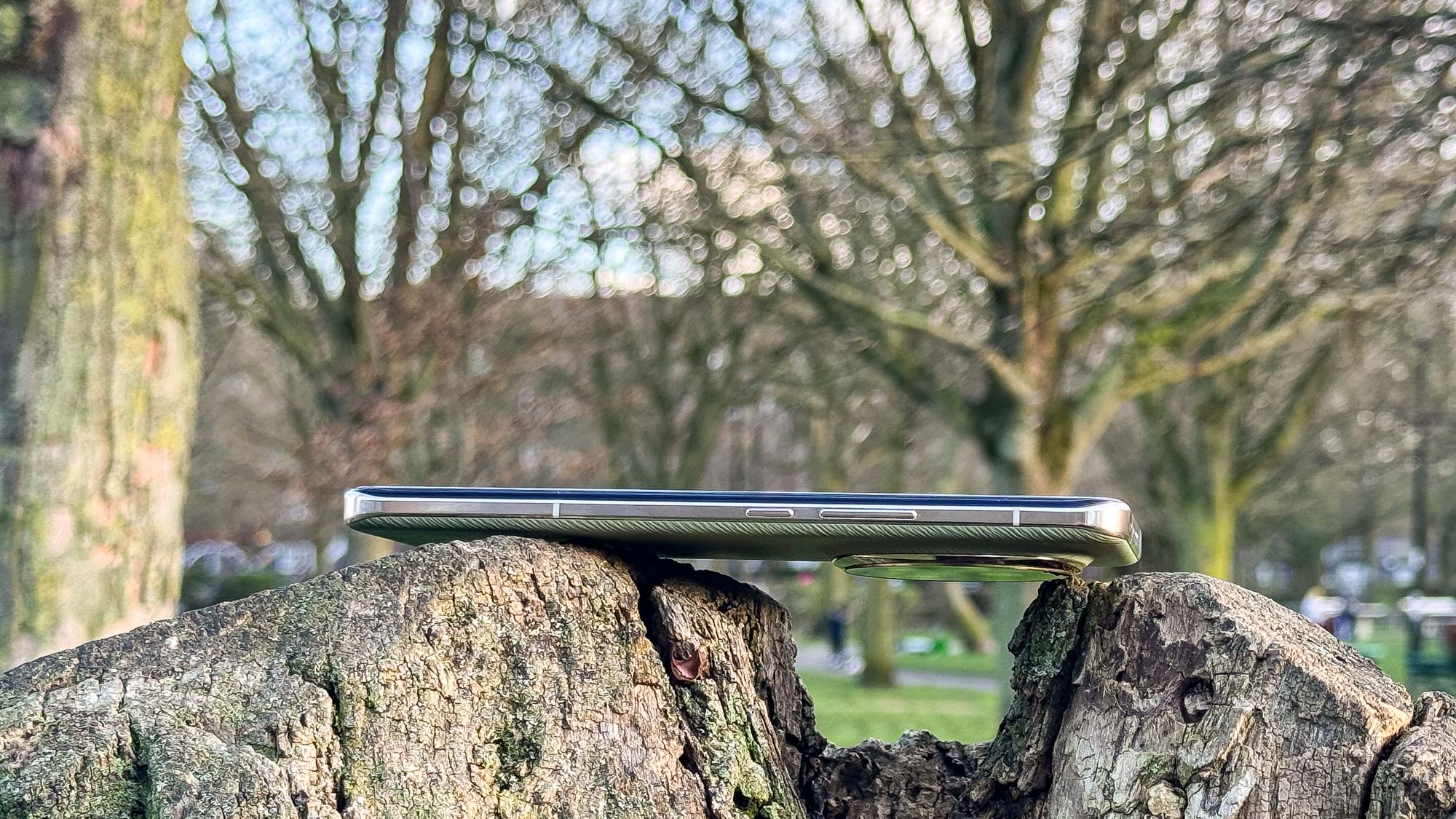
Honor claims the Magic6 Pro is capable of 5,000 nits of brightness, with a more reasonable 1,600-nit "global peak" rating that you're more likely to see in typical use. We didn't get the Magic6 Pro into our lab for thorough testing, but placing the Honor phone alongside the OnePlus 12 and Galaxy S24 Ultra, the Honor seemed to beat the Samsung and sit just slightly behind the OnePlus when set to maximum brightness.
Honor’s updated the Magic6 Pro's display to offer 4,320Hz PWM dimming, which minimizes the imperceptible flickering that mobile screens make. This, along with returning display features like Dynamic Dimming, Natural Tone and Circadian display, makes what Honor claims is the healthiest screen you can get on a phone. The effects are subtle, and I don’t think it made much of an effect on my sleep quality or eye tiredness, but admittedly I don’t use phones like the average owner does, and I’ve only had a few weeks to try the Honor, not for months or years.
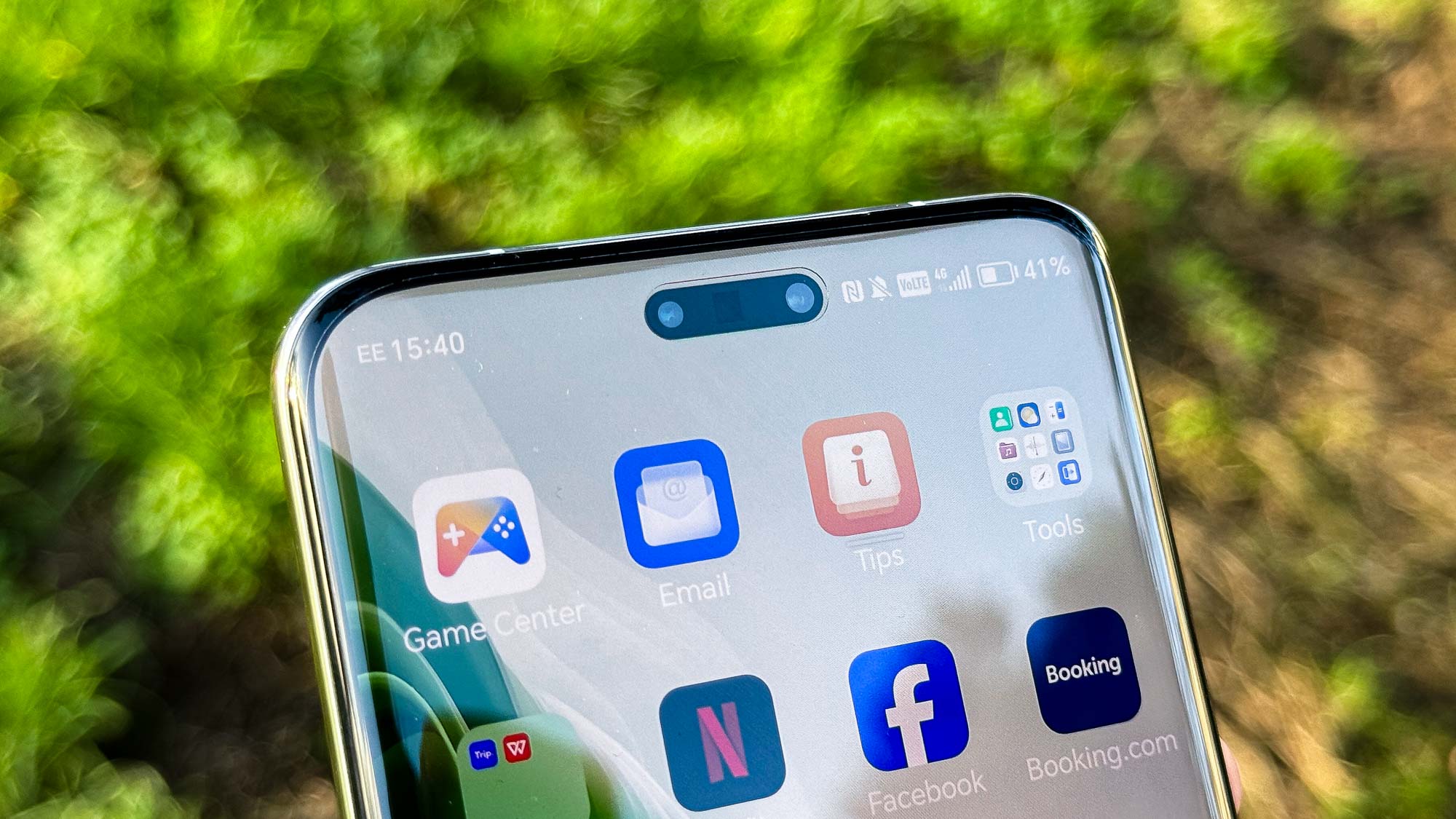
If you want to buy yourself a Magic6 Pro, you can pick either the Black version, with a matte-textured glass back, or the Epi Green one (pictured), which comes with a ripple-textured PU back. It’s a fairly pale green, and the ripples help make the phone nice and grippy, so I’m definitely on Team Green in this phone’s case.
Honor says the Magic6 Pro is rated IP68 for dust/water resistance, and features an updated “NanoCrystal Shield” display material for enhanced drop resistance. We didn’t test these properties for ourselves but it’s nice to have this promise of durability.
Honor Magic6 Pro: Cameras
Honor's camera loadout for the Magic6 Pro has some very unique features. The 50MP main camera, for instance, has an adjustable aperture. It’s similar to the variable aperture feature that Samsung had on the main camera of the Galaxy S9 and Galaxy S10 but that we've not seen since. Normally the camera's set to a standard f/2.0 aperture, but when taking low-light shots it'll switch to the wider f/1.4 settings. And with Pro mode enabled, you can switch between the two freely.
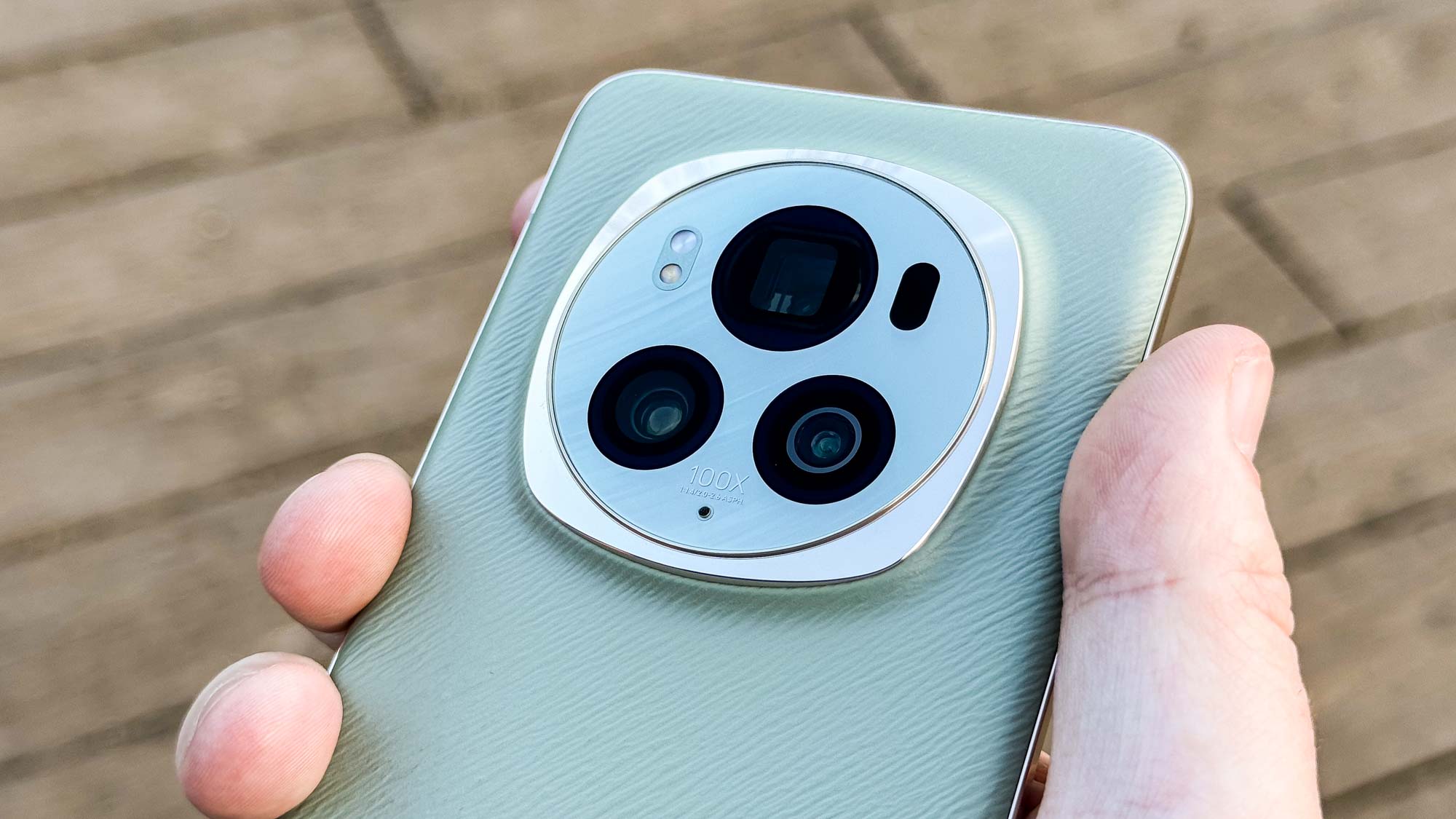
Meanwhile, the telephoto camera has upped its resolution from 50MP to an impressive 180MP, but has downgraded its optical zoom to 2.5x telephoto f/2.6. That sounds disappointing, though Honor still promises lossless hybrid zoom of 5x.
Then there's the 50MP front-facing camera, upgraded from a 12MP sensor and still joined by a 3D time-of-flight (TOF) sensor for depth sensing, among other purposes. Lastly, there's a 50MP ultrawide camera which is apparently unchanged from last year.
But how does this compare to the best camera phones on the market - the iPhone 15 Pro Max and the Galaxy S24 Ultra?
Starting off with a main camera comparison of an old metal park sign, we have two quite similar versions of the shot from the Magic6 Pro and the Galaxy S24 Ultra. The Samsung phone offers a slightly warmer color temperature, but otherwise both phones capture the detail in the lettering and worn paint very well.
Inside the park, I swapped to the iPhone 15 Pro Max as my comparison phone for a wider shot of a bench and a flower bed. The iPhone image is brighter than the Honor's, and more detailed since it takes 24MP main camera shots by default, but the Honor instead offers richer color that helps make this image more interesting.
At night, still against the iPhone and stood in front of the BFI IMAX at night, the Honor image looks a bit washed out, especially in the black sky background. The color of the vivid green tennis ball image on the building's screens also looks off, although at least there's no problem with the sharpness or detail.
In both zoom shots of this patch of flowers, I took with the Honor Magic6 Pro, one at 2.5x and one at 5x, it offers higher contrast than the equivalent 3x/5x shots from the Galaxy S24 Ultra, but at the expense of color.
Since the Honor is using digital zoom for part of the 5x shot, it's impressive that the image quality is consistent with the all-optical 2.5x shot, even if it ends up bleaching some of the purple from the petals.
The Honor's ultrawide photo of a tree, which I again compared with the Galaxy S24 Ultra, offers better color, brightness and contrast than the Samsung version. The difference between the color of the leaves and grass is surprisingly wide between the two phones.
Last of all, a selfie portrait-off. With the Honor up against the iPhone again, there are a lot of similarities in tone and brightness. But the Honor's done a better job with its portrait effect, while the iPhone's squeezed a little more contrast out of where the light hits my skin and hair.
After testing, the Honor Magic6 Pro's cameras are definitely flagship-worthy, even the 2.5x telephoto, assuming you don't mind your photos on the on the desaturated side. The night mode shot is the only one I actively dislike of the Honor's photos here, with all the rest differing in terms of personal preference only. That's still a very impressive result.
Honor Magic6 Pro: Performance
The Magic6 Pro features a Snapdragon 8 Gen 3 chip like other leading Android phones this year. But it also comes with 12GB RAM and 512GB storage, a generous amount of memory for default storage. Which is just as well, since you don't have the option of speccing more.
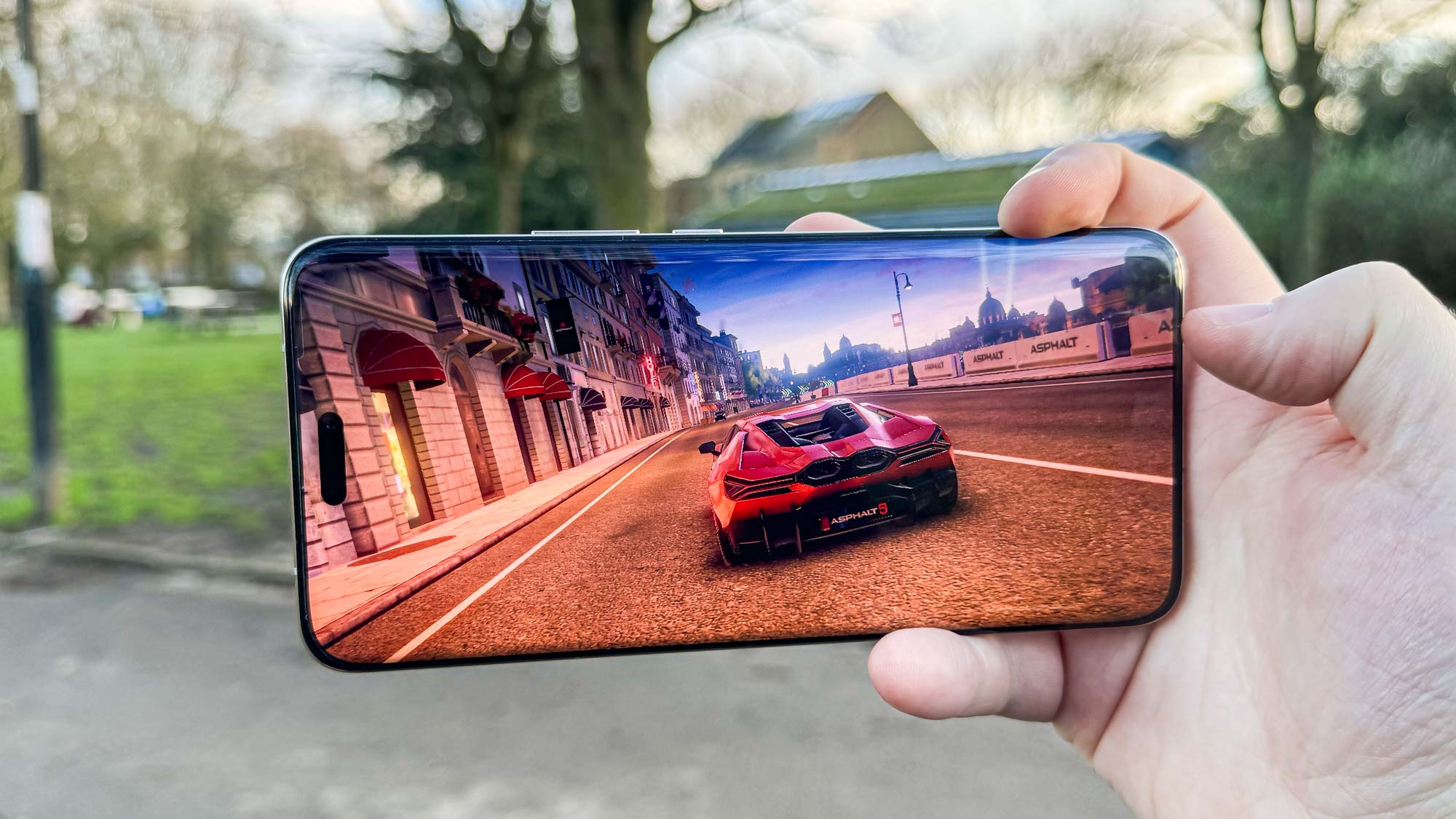
We put the Honor through our usual battery of performance tests, and found it lags behind the competition on CPU power, but offers much more impressive results on the GPU test, beating both the Galaxy S24 Ultra and the iPhone 15 Pro Max. We were unable to do our Adobe Premiere Rush video transcoding test at the time of writing.
When playing games, the Magic6 Pro is as capable as its benchmark scores would suggest, handling racing and FPS titles at max graphics smoothly throughout a play session. Honor isn't selling this as a gaming phone, but like other top flagship phones, it'll serve you just as well as a phone marketed at gamers like the ROG Phone 8 Pro, minus that phone's more unique features.
Honor Magic6 Pro: Battery and charging
There’s a spacious 5,600 mAh battery inside the Magic6 Pro, beating all rivals on capacity. This is a silicon-carbon battery too, which replaces the graphite used in standard lithium batteries to provide more milliamp-hours in a smaller area. Honor’s also shouting about its improved power management chip for enhanced battery management in the cold as well as at regular temperatures.
In my YouTube-based battery test, the Honor Magic6 Pro drained 18% over three hours of non-stop viewing. In the same test, the Galaxy S24 Ultra drained 21% and the OnePlus 12 by 18%. With the OnePlus 12 offering some of the best phone battery life results we've ever had in our full testing, it seems like the Honor is capable of strong longevity on a charge.
The Magic6 Pro supports up to 80W wired and 66W wireless charging. Since Honor no longer ships its phones with chargers in the box, we couldn't test the speeds for ourselves. Honor estimates a full charge will take 40 minutes when the phone's plugged in, but take that with a pinch of salt until we are able to verify this in real-world testing.
Honor Magic6 Pro: Software and special features
Starting with the basics, the Honor Magic6 Pro runs on Magic OS 8.0, which is based on Android 14 like other recent Android releases. But through its own OS, Honor’s promising some fancy AI abilities for the Magic6 Pro, even if you can't use them all just yet.
The center of the Magic6 Pro's current AI package is Magic Portal, part of what Honor calls its “intent-based UI.” By highlighting text then tapping and holding it and dragging it to the edge of the screen, the phone then suggests some apps you may want to send it to. You can do the same with images too, with Honor claiming the phone learns which apps you're most likely to use and surfacing those in the bubbles.
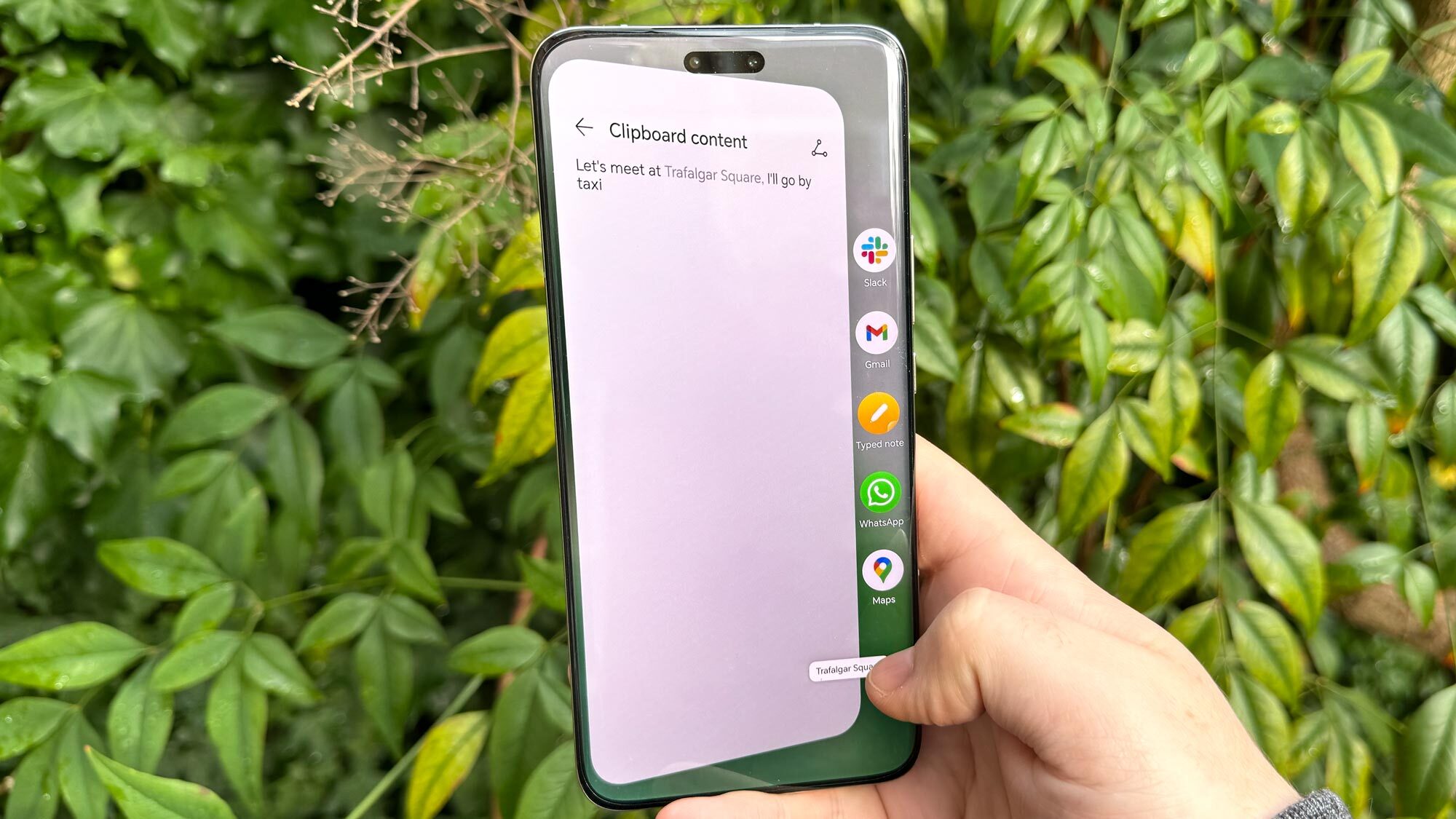
This is a smart way to streamline organizing multiple services or events between apps. However, it still looks a little unambitious compared to the things that Samsung and Google offer on their latest phones, like generative photo editing or quickly summarizing and/or translating text. Maybe further updates to the intent-based UI will expand the Magic6 Pro's artificial intelligence further, and perhaps Honor's approach will prove more useful in the long run than Google and Samsung's generative stuff, but right now Magic Portal lacks a bit of wow factor.
A new design element that’s been staring at you (somewhat literally) this whole time is the Magic Capsule, an enlarged front camera punch-hole that offers secure facial recognition unlocking like the Magic5 Pro, except now positioned in the top center of the phone's display, a lot like the iPhone 15 series.
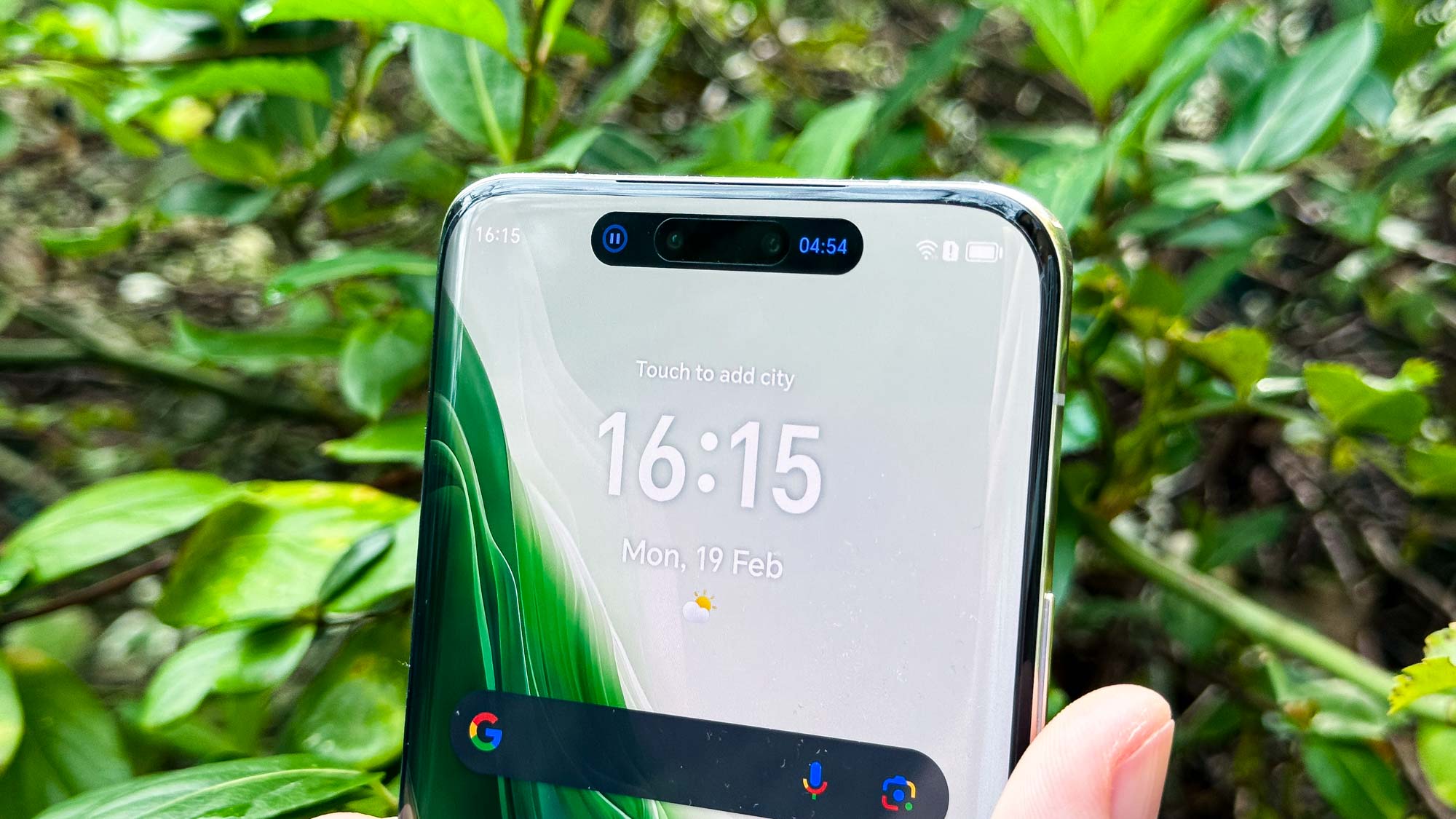
As well as face unlock, the Magic Capsule also permits the use of air gestures to move around the phone’s interface like older Huawei phones and the Google Pixel 4 series. You can scroll up and down, side to side, take screenshots and go back a screen with various hand motions, but getting the spacing and speed of movement just right means you probably won't use this in place of regular taps and swipes too much.
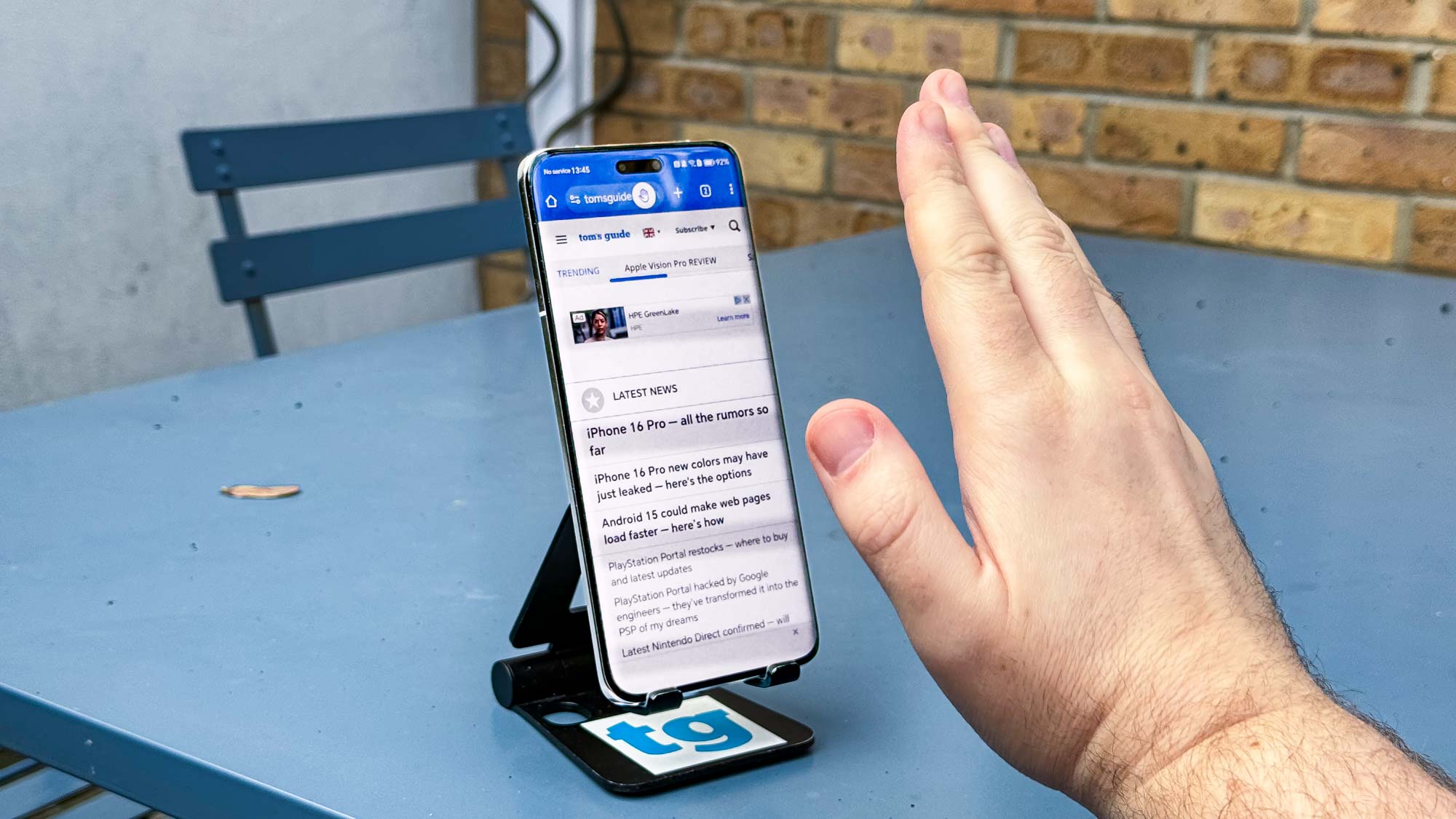
On top of that, the phone can also use the Capsule for iPhone Dynamic Island-style widgets for the phone, clock and screen-sharing features. Just like the iPhone, this is handy for keeping an eye on how one app is progressing while checking something else, and without having a regular picture-in-picture window getting in your way.
Honor has promised four years of full Android updates and five years of security updates for the Magic6 Pro. This matches what OnePlus offers for the OnePlus 12, but lags behind Samsung and Google’s promises of seven years of Android and security updates for its latest devices.
Honor Magic6 Pro review: Verdict
Once again, Honor has shown with the Magic6 Pro that it can do flagship phone-worthy hardware just as well as the biggest brands on the market, and shouldn't be underestimated as a result. Its photos are impressive, its battery life appears to be very strong, the display looks great and it offers some interesting extra functions like Magic Capsule.
Plus, in theory, this phone should be better for your eye health than other smartphone screens. While we don’t know the price just yet, we can assume the Magic6 Pro will offer a good value proposition, offering a similar level of features and performance to phones several hundred pounds more expensive.
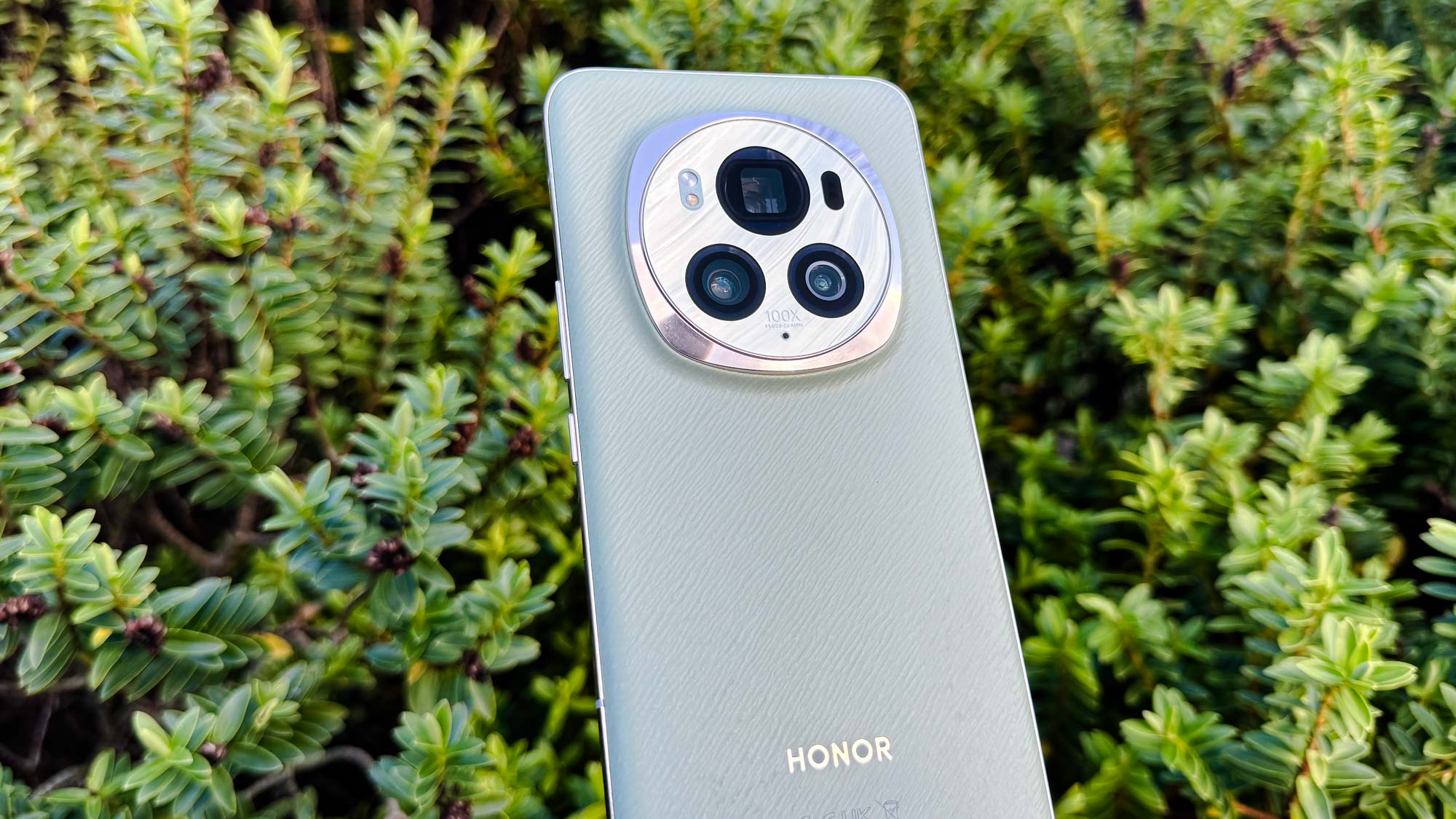
Obviously not being able to buy this in the U.S. is going to be a problem for a lot of TG readers. But putting that aside, users may dislike the Magic6 Pro's weaker low-light photography, its lower CPU benchmarks and its shorter update schedule. Plus, at this point, we can't judge how good its AI features are, even if they don't seem as significant a part of the equation as they are for rival devices.
Taking the phone as we tested it though, the Honor Magic6 Pro could be what you're looking for if you're currently trying to find room for a top-flight phone in a tighter-than-ideal budget. Or if having things like a Dynamic Island on an Android phone or cutting-edge battery tech sounds just perfect.
The Galaxy S24 Ultra, Google Pixel 8 Pro or OnePlus 12 are all strong choices, especially if you're in the U.S. and can't buy Honor phones. But a Magic6 Pro might be the perfect pick thanks to its unique blend of pricing, battery performance and display features.







